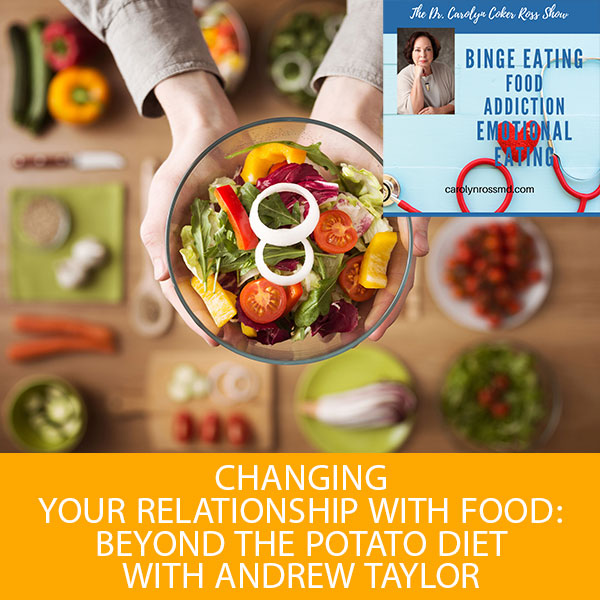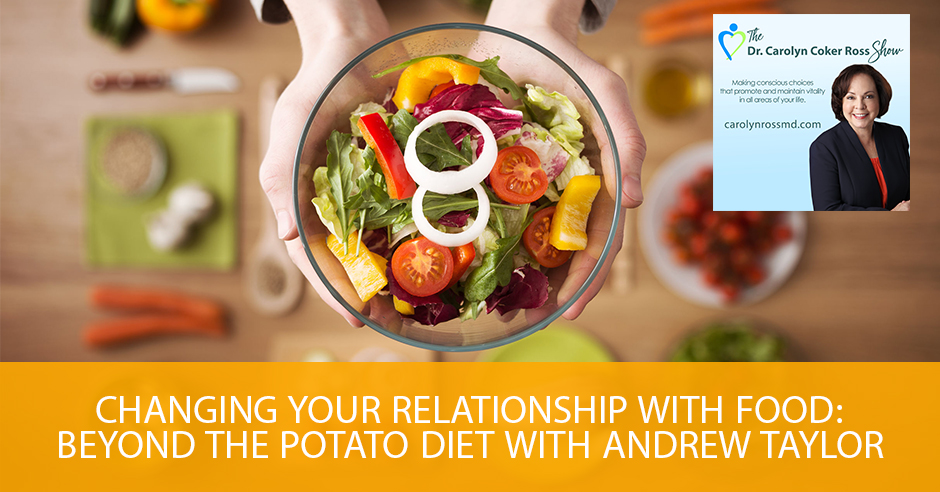
Known as the potato diet guy, Andrew Taylor tells us how he came up with the Spud Fit Challenge and the benefits he found with that. In 2016, he set off and went the entire year eating only potatoes. Coming off from a dark period of his life eating junk foods, he started to reframe and change his relationship with food. More than the potatoes, he talks about being able to commit to a healthier lifestyle, one that yields long-term results. He shares the counterintuitive way of not relying on willpower to get you through your goals. Another fresh take on dieting he presents is having that ability to create fewer good decisions than having to make a number of them when it comes to food choices.
—
Watch the episode here:
Listen to the podcast here:
Changing Your Relationship With Food: Beyond The Potato Diet with Andrew Taylor
I have a special guest from Australia and his name is Andrew Taylor and he’s the potato diet guy. I don’t want to demean your accomplishment, but that’s what most people are calling you.
First of all, thank you for having me. It’s good to be talking with you. My thing is Spud Fit Challenge. In 2016, I went for the whole year eating nothing but potatoes and it changed my life.
That’s a much more sophisticated name for it, the Spud Fit Challenge. Let’s talk a little bit about what drove you to do the Spud Fit Challenge. What was your life like? What was going on? Why did you do this?
I was clinically depressed and anxious a couple of years leading up to it. I was in a deep dark hole in my life and things were not looking good, and it didn’t seem to be any light at the end of the tunnel for me. It was the whole doom and gloom. I was morbidly obese as well. I was very overweight. I was someone who was very good at losing weight in a short period of time and then putting it back on. That’s not uncommon. Many people who lose weight and put it back on plus a bit more and that was me. I had a realization that the way that I was treating food was very similar to or the same as the way an alcoholic would treat an alcohol. We all know an alcoholic or probably multiple alcoholics that they can go on a certain amount of time, maybe a few weeks or a few months without drinking any alcohol. Then a special occasion comes up, it’s a wedding or something and I say, “I’m going to have one or two drinks tonight and then I’m going to go back to being sober tomorrow.” It turned out that one or two drinks turns into full-blown alcoholism again and that was my experience with food.
What were the foods that you feel caused that reaction in you? Was it all kinds of foods or certain categories of food or what?
Junk foods, basically. Any kind of junk foods, highly processed junk foods. The typical stuff, pizza, cakes, ice cream, cookies, chocolates, whatever. It doesn’t have to be any particular kind of junk foods. Anything that was processed, junk food, oily, those were the problem.
Some of the studies show though that when we restrict or deprive ourselves of certain foods, that’s what leads to overeating them. After you hold on with willpower like the alcoholic, and then you can’t hold on any longer or you think, “I’ll just do one.” That’s when it gets out of control. Was that the case with you?
I agree, if you’re relying on willpower, then you’re setting yourself up for failure for sure. That’s where it goes wrong because the most important thing about this experience for me was that it was not about willpower. It’s not about white-knuckling my way through a year and relying on the sheer force of will to get through. It’s about changing my relationship with food. That was the important thing. I coach people through this now. I say to every single person that comes to me, if they’re coming to me because they want to eat potatoes and lose weight and that’s it, then there’s no point because you’re going to put it back on at the end. Eating only potatoes for that period of time for me and what I encourage if other people want to give it a go, I don’t say do it for a year.
Lots of people have heard about me and decided they wanted to give it a go maybe for two weeks or a month or something. In that case, I say, “Go for it but if you’re just trying to lose weight, don’t bother.” This is about changing your relationship with food and understanding what makes you tick and what drives the unhealthy behavior, the unhealthy relationship with food and doing the internal work. It’s not about the potatoes. The potatoes are vehicles that allows you to take some time away from food. It takes some time away from all the pressures and the overwhelming nature of having to make these food choices all day, every day. Our food is all consuming. If you can take some time away from that and not have to think about food so much and use that time to work on the way our mind works and the way our relationship with food works, then that’s a recipe for success. If you keep relying on willpower, you’re setting yourself up for failure for sure.
[bctt tweet=”Restricting and depriving ourselves of certain foods can lead us to overeating.” username=”CarolynCRossMD”]Did you already know that or were you going in open-minded to see what would happen? Is that how you started it?
Yes and no. I realized before I started that basically I couldn’t be trusted with food. The way I’ve thought about and the way I dealt with food was all wrong. It had to be because if it was right, then I wouldn’t have gotten to the point where I was morbidly obese. Every decision I’d ever made with food was made with the best intentions. It had led me to the point where I was ridiculously overweight, unhealthy, depressed and all of that. I have to accept that. Every time I ate cake, I told myself, “One slice won’t hurt.” It was wrong because it did hurt because there was a snowball effect. In that sense, I knew that in the past I had relied on willpower and it didn’t work. If it didn’t work last time or any of the other thousand times so this time, I can’t rely on willpower. I know it’s not going to work because there are so many examples from my history of willpower that are not working, that I need to find another way. I didn’t know exactly what that way would be, but I knew that willpower wasn’t going to cut it.
Besides understanding that willpower wasn’t going to cut it, what else did you learn in that year about your relationship with food or any of the things that led you to where you were before you started this Spud Fit Challenge? Give us some highlights.
The main thing is willpower. The idea of moderation was a big thing to me and extremism. They are the big two big complaints I get or questions I get. Every time someone hears about me they say, “That’s great but what about eating everything in moderation?” I’ve tried moderation so much and I’ve come to realize that there are people that moderation works for. People can be healthy and happy and all of that and that’s fine. I’ve got no problem with it, but there are a lot of people where moderation doesn’t work for. I see that with alcoholics. Alcoholics can’t drink alcohol in moderation. No one in their right mind would recommend an alcoholic, “Just have one or two beers tonight.” It’s not going to work out.
There is a whole methodology around that. There are people who are recommending that alcoholics drink one or two drinks, but I completely agree with you. I agree with you that willpower doesn’t work either. It’s important to do that deeper level work. I was wondering what you can share with us about what kind of work that involved for you personally?
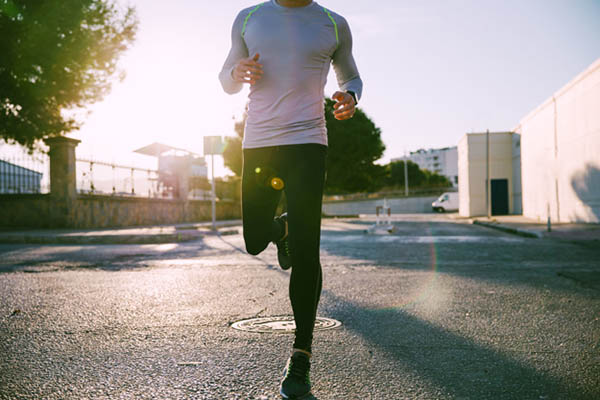
Relationship With Food: Willpower does not work with dieting. You need to go to a deeper level within yourself instead.
First of all, it was accepting reality. That was number one. It was learning to accept reality and stop trying to tell myself that I’m under control and that everything will be okay if I try this one thing. It’s accepting the reality that I can’t be trusted with food, the choices that I make and the voices in my head telling me it’s okay to eat this or it’s okay to eat that. They’re wrong every time, they’re always wrong. It doesn’t matter what arguments that come up with that little voice that I call it my internal junkie. My internal junkie does not care about my long-term health and happiness. My internal junkie or my inner child, I sometimes call it as well, wants to get high. That’s it. That’s the only consideration. They want to get high from eating junk food and that is it. That voice cannot be trusted because it doesn’t have your best interests at heart.
That was the first thing, I had to accept reality and accept that anytime that voice pops up and says, “How about one tiny bit of chocolate?” I can think that voice is an inner child or an inner junkie that wants a hit. That’s it. If your actual or real-life housemate came to you every day and said, “I want to borrow $20 and I’ll get it back to you tomorrow.” Every single day they take your $20, gone, buy drugs, get high and then they don’t give your $20 back to you. Pretty soon you would stop giving them $20 because you figure it out. When it’s your inner voice, for some reason it’s harder to understand.
It’s harder to say no to that. You also talked, at least on your website and even here, about having depression, anxiety. How did this change in your eating plan affect your mood and your levels of anxiety?
There are a couple of things about it but the most important thing is in the food itself. When you talk about the generally accepted treatment for depression, it’s usually with drugs and it’s with something called serotonin reuptake inhibitors. What that does is your brain produces serotonin and it goes into your brain to try to make you feel good, and then your brain reabsorbs the serotonin to recycle it and use it again. This drugs that we take block the process of reabsorbing the serotonin. Rather than your brain producing serotonin and then reabsorbing it, it produces serotonin and then the drugs block it from being reabsorbed. Then the theory is that there is more serotonin in your brain to make you feel happier.
[bctt tweet=”The best recipe for success is working on the way our minds work towards that relationship with food.” username=”CarolynCRossMD”]It tricks the brain into feeling like there’s more serotonin than there it is.
One thing that I learned after I started, I didn’t expect any of this to affect my depression at all, but it did and then I went back and learned about it. One thing that I learned was that I could have the numbers slightly wrong, but it’s around about 5% of your body’s serotonin production happens in your brain and about 95% happens in your gut. What happened was I didn’t change what was going on in my brain, but I have massively changed what was going on in my digestive system in my gut. I had also an excellent source of lots of good healthy fiber that produces good gut bacteria that produces a lot of good serotonin. That simple change in diet allowed my body and the good bacteria in my body to get much better at producing serotonin which is filled with hormones. That’s the biggest factor.
My body started working the way it should and that helped fix everything. Another big factor is when you do a good job at something and you start to be successful in something, then that provides endorphins. It gives you pride and it changes the way you think about yourself. I had never been successful at sticking with some kind of eating plan that I come up with myself. I’d always did it for a little while and then broke it and went crazy. In this, finally for the first time in my life, I was doing something that I said I was going to do. I was doing it perfectly every single day, every single meal I was doing it right.
Why did the Spud Fit Challenge work when you weren’t able to maintain the other things? You maintained only eating potatoes for an entire year, which is incredible. I don’t know that many people could do that for an entire year. Why do you think that that was successful for you as opposed to the other things you had tried?
There are a few reasons. First is that my motivation was different. Every other time when I went on an eating plan, I was trying to lose weight. It is important to lose weight but it’s a superficial thing. My motivation this time was not to lose weight. I have no weight loss goal. I had no intention to lose weight. All I wanted to do is work on my relationship with food. That was the only thing I wanted to do. The weight loss and all the other health benefits I had, the depression, everything, those were nice things that happened. Those were side effects of me working on my relationship with food. I didn’t want to weigh myself initially, but many people were asking me and interested in how my weight loss was going that I did weigh myself. I only weighed myself for other people. For me, if I can get through this year of eating only potatoes, that will be a success. Whatever I weigh at the end of it is whatever I weigh. That’s irrelevant in a way. In the past, I’ve tried to treat symptoms basically. Gaining weight is a symptom of your behavior. If you’re only dealing with the symptom that is the weight gain, then you’re not dealing with the cause and that is the behavior. This time I forgot about the symptom. The symptom was irrelevant. Let’s deal with the root cause of the problem and that was my relationship with food and the way I behaved. That was the main thing that I changed my focus and changed my motivation to things that mattered.
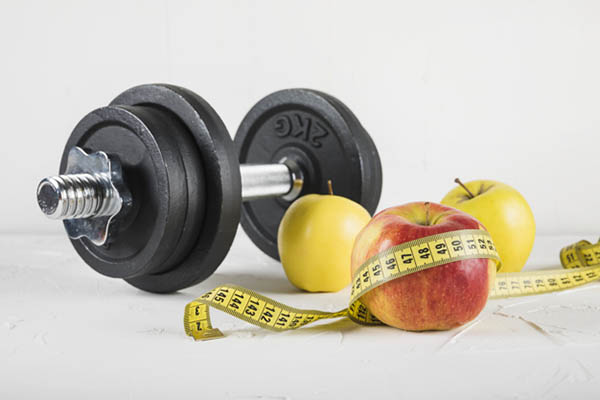
Relationship With Food: A healthier lifestyle is not about the food; it’s about how you are using it.
You’re hitting a lot of the high points. I do coaching with clients around food and body image issues. One of the things I say over and over is it’s not about the food. It’s not about the potato, it’s about how you were using food. It’s about your relationship with food. Do you think though if another person or if you yourself had that same change in motivation, had that same intention to change your relationship with food, that you could have picked any kind of diet and it would have worked? Is there any magic in the potato?
Not any kind of diet. I specifically chose the potato because it was the best choice as far as keeping me physically healthy. If you chose any kind of food, there are other foods that could work in theory, but bananas theoretically could work or mangoes.
What about a diet that has a variety of things? Why would it have to be one single food?
For me and for many other people, the one single food is important, at least for a short period of time. In hindsight, a year was a lot more than I needed but I didn’t know how long I needed before I started, and no one has done this before. As far as I know, I was the first person to try this for the reasons that I did it. In hindsight, a month or maybe two months would have been enough for me. Everything I wanted to achieve was done by then, but I kept on going to a year because it was something I wanted to do. The reason that one food is important is back to the alcoholism thing. An alcoholic has one choice to make, to drink alcohol or not, that’s it. I wanted to get as close to that abstinence model as I could. I’ve tried everything with food, every diet, every eating plan you can think of. I had tried them all and they all failed. I needed to go onto an addiction model rather than the healthy eating model. The addiction model is abstinence. If I had potatoes and some other foods, then that adds in a whole array of decisions that you’ve got to make. I want to keep it close to that, “Do I drink alcohol or not?” as I could. You can’t say, “Am I going to eat food or not?” If the answer is yes, there’s only one thing to do and that is to eat potatoes.
[bctt tweet=”After creating a number of decisions, the ability to make good decisions begin to diminish.” username=”CarolynCRossMD”]We reduced the number of decisions that we’ve got to make. I keep it as simple as possible. Decision fatigue is a real thing. There’s no way to put an exact number on it, but we’ve only got X amount of effective decisions that we can make every day. After a certain number of decisions, then our ability to make good decisions starts to diminish. With food, you make so many decisions every day regarding food, not just am I hungry or am I not? Once you decided you’re hungry then, “What am I going to eat? What combination of all these different foods am I going to eat? How am I going to eat it? How much am I going to eat?” Forgetting about all that was what I wanted to do. There are decisions that are not just that, all these decisions to make about when you go shopping and when you’re cleaning out after food and all of these. It is so much to do. When you strip all of that back and get rid of all the decisions, it allows you some freedom and some space in your mind to then refocus all that energy and refocus all that mental space that you take up with food. You refocus it on changing the way you think and the way you behave.
It’s interesting what you’re talking about because in preparation for this episode, I was a little bit hesitant because as a medical doctor, a specialist in eating disorders, we know that any kind of dieting doesn’t work. What I like about what you’re saying is that you didn’t see this as a diet. I know from reading your blog that you made sure that you pick something that had the most health values that could sustain you. Most people think of a potato as a food to avoid, especially if you have a weight problem and yet from your research, which is very valid, you showed that it has protein, it has fat, it has nutrients. You were being followed by a medical person and that was showing that you weren’t harming your body. You did all the things that you could do right. The other thing is I recognize in working with people for years that there is too much information out there about what to eat and what not to eat. I developed what I call my simple plan. It’s not one thing, but it’s five things you have to think about. I understand where you’re coming from that having fewer decisions is important. I am expressing my surprise that we have so much in common.
What I do is an extremely important thing to me and it can be for other people. When people first come to me and say, “What should I eat to try to get healthy?” I don’t say you should only eat potatoes. What I eat now is a whole food plant-based diet. I focus on potatoes, but I eat my grains. I eat veggies, fruits, whole intact grains and beans and things like that. That’s what people should do. That’s what I recommend. There are a lot of people like myself who try to do that. They have a lot of trouble sticking with it because the focus is all about the food and you’ve got so many decisions to make like we talked about.
Many people don’t know how to do a balanced plant-based diet because we’re not taught that, or we didn’t grow up that way and learning how to do that. That’s a whole new skill that you have to bring in.
Those things are mostly remembering that you have to eat more to get the right amount of calories and energies that you need because meat, dairy products and eggs are high in calories. When you take those out, you need a higher volume of food, which is a different issue as well. This potato, the only thing that I do with the Spud Fit Challenge is I think it was a useful way to transition towards a healthier eating diet and that’s all it’s ever intended to be. What it was for me and that’s what I intended to be when I recommend it to other people is to do this for a set specific period of time. I recommend a month. I don’t recommend a whole year as I did. I think a month is a good amount of time to spend some good quality time with yourself and understand the way that you think about food and understand why you behave the way you do and learn some strategies for changing the way you’re thinking. Once you start feeling confident that you’re doing well with only potatoes and it’s getting easy, then you can start adding in some other healthy plant foods as well.
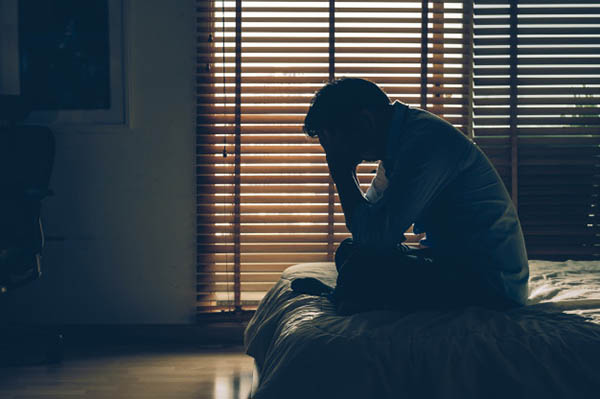
Relationship With Food: People are suffering when they are not happy.
Do you feel like Australia is a diet crazy culture like America is or not quite as bad?
Probably not quite as bad but it is. It’s definitely a diet crazy culture. Our obesity level is pretty similar to the US. We have a very similar diet to the US. We’ve got all the same fast food chains everywhere. Australia is not quite at the level of the US is, but not far behind. Pick any street and walk down the street and you’ll see plenty of people that have tried this idea of everything in moderation and have failed.
I was also wondering if you’re getting because we’re starting to get a lot of pushback about whether there is a true link between weight and health and all of that. There’s a whole activist movement around this, the fat activists, who are very reactive, “Don’t tell me to lose weight. I can be healthy no matter what my size is.” I’ve been a big supporter of that movement. I do think you can be healthy no matter what your size is and there are many people like you who feel that’s not what they want. That’s not the relationship with food that they want. That’s important because people are suffering when they’re not happy with how they deal with food or how it feels in their body or fill in the blank. Not just about their size, but often about the behaviors and the control that food has over their lives. That needs to be addressed. We can’t ignore it. I don’t know if you’re seeing the same kind of movement there that we have here.
Personally, I wasn’t happy with my weight, not because I didn’t like the way I looked. The main problem with it for me was that I couldn’t do the things I wanted to do. I was previously an athlete. I played football, I’ve done long distance kayaking, I played basketball and I couldn’t do any of that stuff that I like to do because I was too big for it. That was the main thing. I wanted to get back to living my life the way that I lived with my life. As far as all the activism and everything about body positivity and all of that, I’ve got a couple of different thoughts about it. First of all, if someone is overweight and they’re happy being overweight, that’s fine with me. I’ve got no problem with that. It’s totally possible that you can be 100% mentally healthy, psychologically healthy and happy and all of that. That’s great. If you don’t want to lose weight, that’s fine. I have absolutely no problem with it. As far as being physically healthy, there’s a lot of research out there. These are based on population datasets. On average, people with bigger waistlines are more susceptible to an array of chronic diseases.
[bctt tweet=”You can be healthy no matter what size.” username=”CarolynCRossMD”]Some of the research is being reexamined with the lens that many of the researchers have made the assumption that being fat is by its very nature unhealthy. We’re having research coming out that’s showing it’s not the number on the scale, but it may be more related to lifestyle factors that are causing diabetes and so on. There’s a lot going on at least in the US here and there’s a lot of anger about some of the research and the stigma that many people of size feel has been put on them. It’s all good, we have to make choices for ourselves. You made the choice you made for yourself and many other people will make a different choice and that’s fine. The people that I work with have chosen that they want to change their relationship with food. Like you, many of them already have health problems. They aren’t being able to play with their kids or do the things they want to do. That’s their reasoning. That’s a very valid motivation. I don’t in any way want to say that that’s not okay.
I’m not here to say that anyone else’s motivation or the idea of what a healthy person looks like or anything is wrong or invalid or anything like that. Everyone’s feelings around weight are totally valid, whatever they are. If you’re happy or unhappy with the way that you look or the way that you’re able to move or your level of health and whatever your feelings are about that, it’s valid and it’s right. It’s not for me to decide what you should do. I’m here to share my story basically and there are a lot of people that seem to connect with my story and want to try to do things the way that I did. If they do, then I’m happy to help but I’m definitely not here to say that everybody should be eating only potatoes. That it’s the best thing for everybody to do. It’s the best thing for some people to do for sure, but it’s definitely not the best thing for everybody to do. It’s up to the individual to decide that.
That’s where we’re missing out when we take away people’s choice by telling them, “You shouldn’t be this or you shouldn’t be doing that.” We have a long history in the eating disorder field where diets have triggered eating disorders and led people down the path of anorexia and bulimia and that is not okay. That’s not a good thing. We have a lot of stigmas that people are experiencing when they are living in larger bodies that they’ve now internalized. They feel shame, guilt and embarrassment about themselves that society has put on them.
I still feel all those things now. I don’t have the body that I used to have, but it’s a real struggle getting rid of all those feelings. I still feel like a fat guy walking around the street. When I was 55 kilos heavier, 120 pounds heavier than I am now, I walked around feeling like a miserable slob and a failure. I know that not everybody saw me that way, but that’s the way I felt everyone was looking at me. I walk around the street these days and I still feel like that, even though I’ve got a totally different body than what I had. It’s hard to get rid of those feelings. I have totally changed the way I relate to food and I’m comfortable with my weight now. I’m comfortable with the way I eat and all of that, but I still sometimes walk past a mirror or something and go, “Who’s that skinny guy?” I’m not used to it yet.
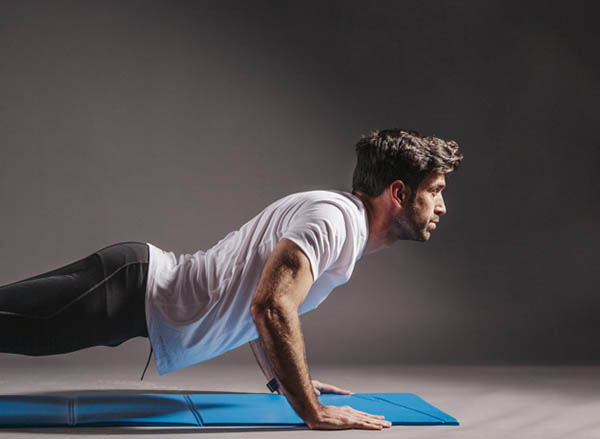
Relationship With Food: The important thing is to work on the problem and not the symptom.
Sometimes that discomfort with being skinny can lead people to go back to overeating and putting weight on again. You bring up so many great points because this point that you mentioned is about recognizing that losing weight is not going to solve all your problems. Many people that I work with think, “Everything would be fine if I could lose the weight.” It’s not that way. I loved the fact that you’re being honest about that. Your life isn’t perfect. You don’t feel like you’re all that and you have lost a lot of weight, so it’s important for people to know. I also saw on your blog or somewhere on your website that you encourage people to not let themselves go hungry, that you would eat enough so that you weren’t hungry even when you are only eating potatoes. That’s a critical point and then you reaffirm, do what’s right for you. Instead of, not everybody’s going to want to adopt this Spud Fit Challenge, but find something that works for you and stick to that and being able to maintain it is what’s important.
The important thing is working on the cause of your problem, not just working on a symptom. If you’re working on trying to change what the numbers on the scale say and you’ll change them and then you won’t, then they’ll go back up. You’ve got to work on why are the numbers on the scale is going up? What is the cause of that problem? You’ve got to work on that.
[bctt tweet=”If you’re unhappy with the way that you look or feel, that’s valid and it’s not for other people to decide otherwise.” username=”CarolynCRossMD”]You’ve got to get to the root cause. That’s my mantra so I’m echoing that now. I hear you have a new book. Can you tell us about that? Tell us what people can find out about in that book.
It’s called Spud Fit: A Whole Food, Potato-Based Guide to Eating and Living. The title is Spud Fit and the subtitle is A Whole Food, Potato-Based Guide to Eating and Living. I’m really proud of it. It’s not a potatoes-only cookbook. I’ve got another book that I wrote and it was about how to do potatoes only, The Spud Fit Challenge. This one is more about the way that I eat and I live now since I finished that year of only potato. It’s whole food, potato-based. It’s got over 100 recipes. Every recipe has potatoes in it, but with other ingredients too. The idea is it’s not about recipes either, there is a lot of advice, lifestyle guidance and advice from me and from other people as well. There are 92 different contributors from all around the world, from whole food plant-based doctors, athletes, wellness warriors, other health professionals, activists, things like that.
I understand Rich Roll is maybe one of those.
I have worked with him on a couple of things before but he’s not in this book.
[bctt tweet=”The Spud Fit Challenge won’t solve all your problems, it will reveal and magnify them. It’s up to you to do the work on solving them.” username=”CarolynCRossMD”]Your website is also SpudFit.com.
If anyone has any questions or wants advice or whatever, you can go there and get in contact with me through my website. @SpudFit on all those social media as well. Look up for Spud Fit wherever you go and that’s where I am.
Thanks so much for being on my podcast. It’s been an interesting time talking to you. I appreciate it.
The same thing, it’s been an interesting conversation for me too. I’ve enjoyed it. Thank you for having me. Thank you for doing what you do. I’m sure you’re changing lots of lives in the process too.
Thank you so much.
Important Links:
- www.SpudFit.com
- Andrew Taylor
- Spud Fit Challenge
- Spud Fit: A Whole Food, Potato-Based Guide to Eating and Living
- The Spud Fit Challenge
- @SpudFit on Facebook
About Andrew Taylor
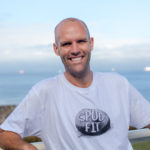 Andrew Taylor’s story went viral when the world caught wind of the 36-year-old Aussie dad who had embarked upon a quest to eat only potatoes for the entirety of 2016.
Andrew Taylor’s story went viral when the world caught wind of the 36-year-old Aussie dad who had embarked upon a quest to eat only potatoes for the entirety of 2016.
But to assume – as most did, at first – that this was some clown doing something crazy and unhealthy on a whim for 15 minutes of fame, was to miss both the perfect logic of the experiment itself, and the exceedingly powerful and timely message Andrew brings. Hint: it’s not about the potatoes.
In late 2015, the former junior Australian Champion marathon kayaker was in the depths of despair after yet another failed attempt in a lifetime of dieting that had left him even heavier than before – 151.7kg.
From his black hole of clinical anxiety and depression, desperate to be the man he hoped his young son could look up to, he had an epiphany: he was a food addict.
Logically then, to Andrew, who thinks outside the square, he should treat his food addiction the same way you would treat any other addiction: through abstinence – or as close to it as you can get.
Armed with a degree in Applied Science (Human Movement) and a fascination with all things nutrition-related, the former high school physical education/health teacher spent six weeks researching ‘the perfect food’ before he settled on the humble spud – just in time to begin a whole year break from thinking about food on New Year’s Day, 2016.
With the media frenzy that followed his ‘Spud Fit Challenge’ story came the opportunity to help thousands of other food addicts deal with their own food psychology issues while losing weight and getting healthier along the way.
Andrew’s first short book, ‘The D.I.Y. Spud Fit Challenge: a how-to guide to tackling food addiction with the humble spud’ was co-authored by his wife Mandy van Zanen and has helped many people to break the shackles of food addiction.
Andrew now spends his time coaching others through food addiction through ‘The Spud Fit Challenge‘ community, speaking, making youtube videos and interviewing groundbreakers such as Rich Roll, James Aspey, Doug Lisle and Alan Goldhamer for his podcast. He is also currently writing his second book.

